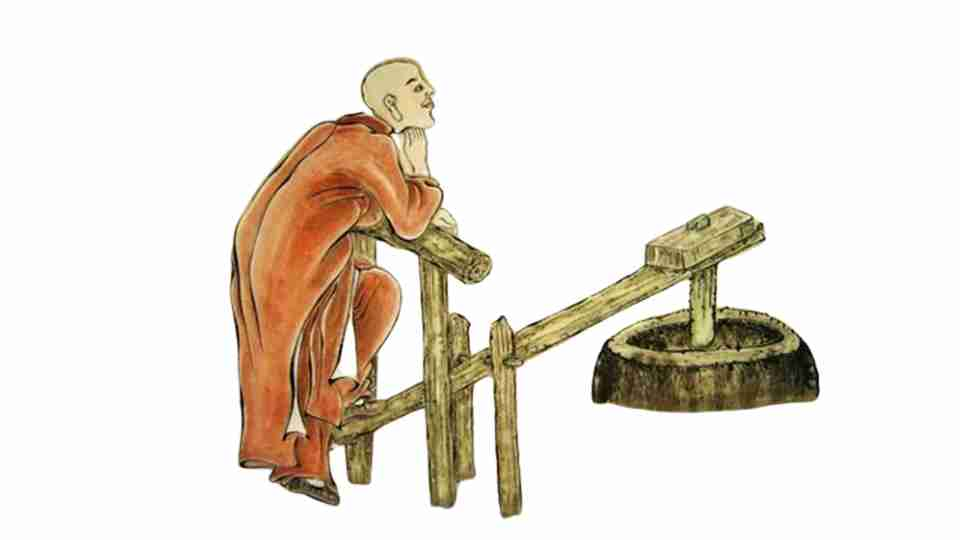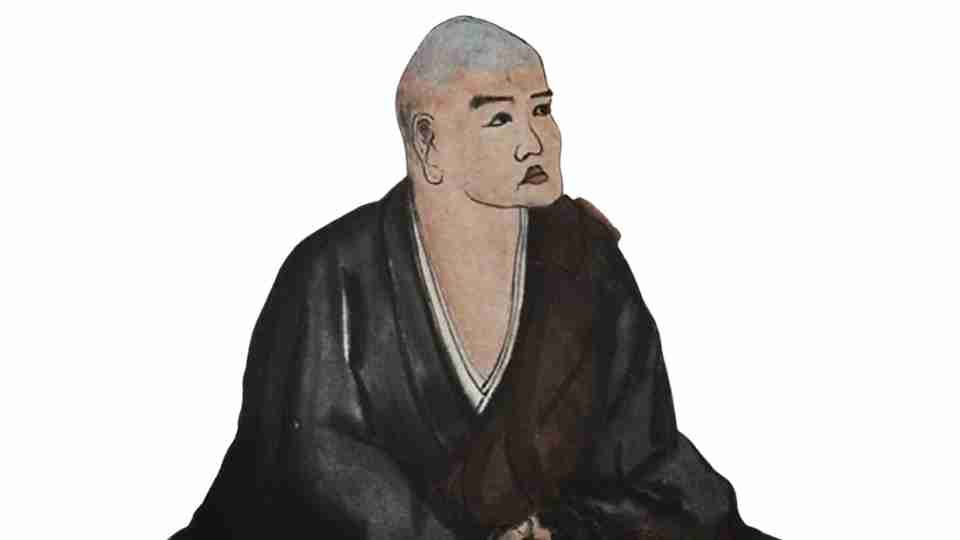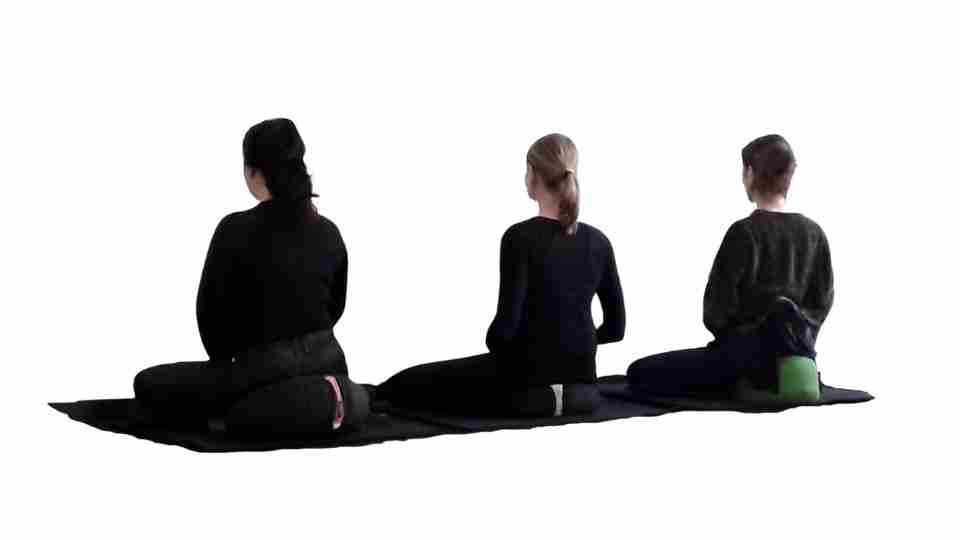The history of Zen Buddhism is fascinating and enriching, as it represents a spiritual tradition that has evolved and adapted over the centuries while preserving its essence and fundamental teachings.
History of Zen Buddhism Course: Introduction
This course on the history of Zen Buddhism takes us on a journey to discover this rich tradition, which focuses not only on meditation and spiritual practice but also on a profound philosophy of life.
Throughout the course, we will explore key stages in the evolution of Zen Buddhism, from its origins in India to its expansion in the modern world. We will also examine the teachings of prominent Zen masters and how their legacies continue to inspire new generations of practitioners.
By the end, we hope this journey through the history of Zen Buddhism will not only enrich our understanding but also provide practical tools to apply its teachings in our daily lives.

Origins of Zen Buddhism
Zen Buddhism has its roots in the teachings of the Buddha, which emerged in India more than 2,500 years ago. As these teachings spread, they were adopted and transformed by different cultures, as seen in Tibetan Buddhism.
Zen Buddhism, in particular, arose as a branch of Mahayana Buddhism in China during the 6th century CE. Its development was influenced by Indian Buddhism combined with elements of Taoism and Confucianism. Through this fusion, Zen emphasizes the direct experience of reality and meditation as paths to enlightenment.
Zen Buddhism in China (Chan buddhism)
On its journey, Buddhism reached China, where it became known as “Chan.” During this period, new Buddhist schools emerged, enriching the tradition by focusing on meditation (zazen) and the direct experience of reality.
One of the pivotal moments in Chan’s history was the arrival of Master Bodhidharma, considered the first patriarch of Zen. His emphasis on meditation and personal experience transformed Buddhist practice in China.

The arrival of Zen in Japan
Later, Chan Buddhism made its way to Japan, where it evolved into what we now know as Zen Buddhism.
By the late 12th century, Zen was introduced to Japan, where it developed into various schools of Zen Buddhism, such as Rinzai and Soto. These schools offered different approaches to meditation and spiritual practice. Japanese Zen became an integral part of the culture, influencing art, poetry, and the tea ceremony.
Modern expansion of Zen Buddhism:
In more recent times, Zen Buddhism has found its way to the West, where it has been met with interest and curiosity.
Many people have embraced its meditation practices and philosophy as a way to find inner peace and clarity in an increasingly complex and fast-paced world. This cultural exchange has enriched both Zen communities in the West and Buddhist traditions in their original settings.
In the 20th century, Zen Buddhism began to gain attention in the West. Through the translation of texts by figures like D.T. Suzuki and the arrival of Zen masters like Taisen Deshimaru, Zen meditation and its teachings became popular. Zen centers and temples began to appear. Today, many people around the world practice Zen, seeking inner peace and mental clarity in a frequently chaotic world.

Zen in the modern world:
This course invites us to explore not only the history of Zen Buddhism but also its relevance today. As we delve deeper into its teachings, we discover valuable tools for facing the challenges of modern life. Zen practice offers us a path toward self-understanding and connection with the present, reminding us that enlightenment is not a goal but a continuous practice.
History of Zen Buddhism Course:
Meditation Sessions (zazen)
The classes will always begin with a brief meditation session. Zazen meditation sessions are a fundamental practice in Zen Buddhism, focusing on seated meditation. During these sessions, participants sit in a specific posture, usually on a cushion called a zafu, with crossed legs and a straight back. Attention is directed to the breath, allowing thoughts to flow without clinging to them.
Theoretical Classes on History and Philosophy
The theoretical classes on Zen Buddhist history and philosophy are essential for understanding the context in which this practice developed. These classes cover the origins of Zen, its roots in Buddhism, and how it has evolved over the centuries. The teachings of key figures, such as Bodhidharma, the first Zen patriarch in China, and Dogen, the founder of the Soto school in Japan, are explored.
Additionally, fundamental philosophical concepts such as the nature of the mind, impermanence, and emptiness are analyzed. These classes not only provide a theoretical framework but also invite participants to reflect on how these teachings can be applied in daily life, fostering a deeper understanding of Zen practice.
Readings and Discussion of Classic Zen Texts
Reading and discussing classic Zen texts are integral to learning in this tradition. Participants have the opportunity to delve into foundational works such as Shobogenzo by Dogen, The Practice of Zen by Taisen Deshimaru, and the books by Master Lluís Nansen, the course instructor.
Through these readings, topics like meditation, mindfulness, compassion, and enlightenment are explored. The discussions that follow the readings allow participants to share their perspectives and experiences, fostering enriching dialogue and deepening collective understanding.
Course Details
Format In-person: Zen Kannon Barcelona, and online via Zoom.
Zen Master: Lluís Nansen Salas.
Course start: January 9 , 2027
Schedule: Saturdays or Sundays from 5:00 PM to 7:00 PM
2025 Calendar:
Saturday, January 9: Origins of Zen Buddhism
Saturday, January 23: Zen in China and Japan
Saturday, January 30: Contemporary Zen
Sign up for the History of Buddhism course or the Complete Buddhism course.

2027/02/27 Zen Buddhism Course: Fundamentals of Dharma
In this Zen Buddhism course on the fundamentals of Dharma, we will review some of…
2027/07/4 The Way of Zen – A walk to Awakening
The Way of Zen a walk to Awakening The way of Zen course is an…




